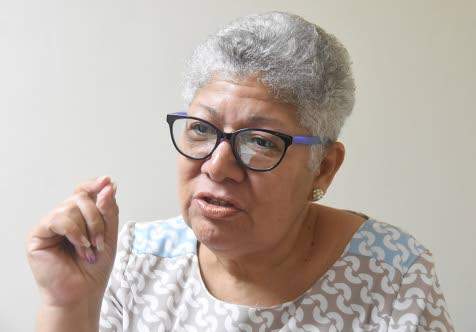(Jamaica Observer) THE National Identification System (NIDS) will be providing birth certificates, free of cost, to Jamaicans who are not or partially registered ahead of the roll-out of the national identification programme next year.
Following the Jamaica Observer’s story about 17-year-old Raheem Powell’s plight of not having a birth certificate, which kept him from going back to school after he dropped out at Grade 6, NIDS expressed interest in assisting him.
However, the Registrar General Department (RGD) had already begun the registration process.
Chief technical director in the Office of the Prime Minister Jacqueline Lynch Stewart, who is heading the NIDS project, told the Observer that there is a budget in the programme for undocumented persons.
“Whenever we see stories like what you wrote we immediately reach out and assist the individual,” Lynch Stewart explained.
However, she said NIDS does not have the human resources to deal with an “onslaught”.
“What we are doing is going into communities in a structured way with the RGD team; so far they did one already in Linstead [where] about 500 people turned up. We want to finish processing those 500 before going to another community because one of the worst things to do is go into another community and 1,000 people show up and you haven’t finished with the first 500 and then they start say, ‘Yuh see dem people deh, dem is a set of dis and dat and dem just come and fool us up all the time’, so we have to do it in a structured way. We have a plan. As soon as the digitisation of the records are done we will actually move faster,” she explained, adding that the RGD is expected to start digitising its records by next year.
RGD Project Coordinator Charlton McFarlane concurred, saying that more than 500 people had turned up to take advantage of the service in Linstead, St Catherine.
McFarlane said the fundamental reason for the outreach project is to ensure that individuals have a birth certificate, given the fact that the document is a must to obtain the national identification card.
“We recognised that while the RGD has a mandate to register all births, history has taught us that not all births are registered and so we don’t want anybody to be disenfranchised when NIDS comes on board and they are not registered because those persons would have been born for some time now. The process to get them registered is not a simple one. We have to verify the circumstances on the ground, which is a product we offer at RGD as late registration. There are also people who are partially registered,” McFarlane said.
According to McFarlane, approximately 200 of the 500 persons who attended the session in Linstead in June have been processed.
McFarlane, who was unable to say how many of the participants were partially or not registered said some people were unable to take advantage of the initiative because they were unable to provide the RGD with the necessary documents to complete the process.
He said a christening certificate, school record or an immunisation card can be use to substantiate the circumstances.
“We also need to do statuary declaration where persons attest legally that they are familiar with the circumstances around their birth. First, we need to know where you were born and, to effect registration, we need the mother’s name, we need place of birth and date from an informed person. Most times in hospital the witness is the mother or the father. That data field is critical and because we are doing something that happened in the past; we have to get these things right,” he explained.
He added: “Many of the persons who were never registered are persons who probably would have challenging socio-economic circumstances. Many of the times the circumstances around the birth are things that people don’t remember or may not want to share. So, we have to capture those circumstances. Under normal circumstances, late registration takes about six months because before we register you, RGD has to prove to itself that we did not register you [before],” he said, adding that they have to search their records to ensure that the individual was in fact not registered.
Said Lynch Stewart: “The NIDS project is going to address the many undocumented, particularly young people.Think about it, if you are under 18 in Jamaica there is no ID for you to get unless you have the money to buy a passport, and if you are not travelling it’s kind of hard [as a] passport is about the cost of one week’s minimum wage.”










